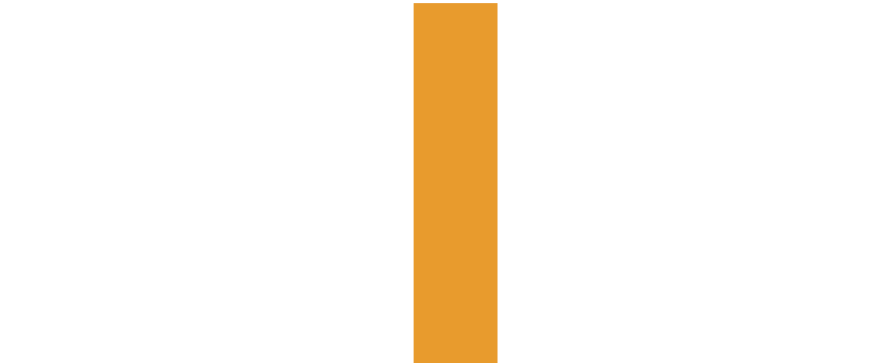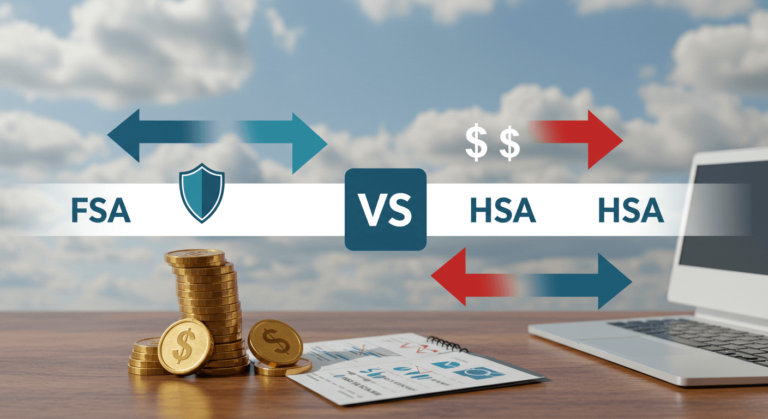In terms of saving money on healthcare costs, there are two widely known alternatives: FSA (Flexible Spending Account) and HSA (Health Savings Account). Both plans allow you to save pre-tax towards medical expenses so that you can save more of your income and get more out of the dollars you do have.
On the face of it, HSA vs FSA can appear quite alike. They each assist you in covering qualified medical costs such as prescriptions, doctor visits, or medical equipment. But they are not the same. They have varying eligibility, contribution, rollover, and ownership rules.
When you need to make a choice between an FSA and an HSA, we simplify the information in the most basic manner. At the end, you’ll see precisely how they compare and which can simply work with you.
What Is an HSA?

An HSA or Health Savings Account is a special type of savings account that is offered to individuals on a high-deductible health plan (HDHP).
Here’s what you should know about HSAs:
- To open one, you have to be enrolled in a high-deductible health plan. That is a minimum deductible of $1,600 in individual coverage or $3,200 in family coverage in 2025.
- An HSA can be opened either at work or on your own, provided that you are qualified.
- The contribution limit in 2025 will be $4,300 as an individual and $8,550 as a family. You are 55 or older, and you can contribute an additional 1a thousand catch-up.
- HSAs are portable. That means the account is yours, and you take it with you if you change jobs or retire.
- Unused money rolls over year after year, so your savings can grow.
- You can invest your HSA funds in bonds, stocks, or mutual funds.
- HSAs come with a triple tax benefit:
- Contributions are tax-deductible (or pre-tax if through payroll).
- Growth and interest are tax-free.
- Withdrawals for qualified medical expenses are tax-free.
Because of these benefits, HSAs are often seen as a powerful way to save both for current health expenses and for healthcare costs in retirement.
What Is an FSA?

An FSA (Flexible Spending Account) is another type of account that helps you save pre-tax dollars for eligible healthcare expenses. But it works a little differently than an HSA.
Here’s how FSAs function:
- FSAs are only available through your employer. If your employer doesn’t offer one, you can’t open it on your own.
- In 2025, the contribution limit is $3,300 per person or $6,600 for families.
- Employers may also contribute. They can add up to $500 on top of your contributions, or they may match dollar-for-dollar if they add more than that.
- Unlike HSAs, your employer owns the account. You can use the money, but if you leave your job, the funds usually don’t go with you.
- FSAs do not earn any interest, and you cannot invest the money.
- FSAs are generally “use it or lose it.” That means you must spend the money by the end of the year, or you lose it. However, some employers also offer:
- A grace period of up to 2.5 months to spend leftover money, or
- A rollover of up to $660 into the next year.
FSA can also be particularly handy when you are likely to incur regular medical costs, such as drug prescriptions, doctor check-ups, or scheduled surgeries, since the money will be used during the same year.
HSA vs. FSA: A Side-by-Side Comparison
To make things clear, let’s look at the major difference between HSA and FSA in 2025:
| Feature | HSA | FSA |
| Contribution Limit (2025) | $4,300 individual / $8,550 family (+$1,000 if 55+) | $3,300 individual / $6,600 family |
| Eligibility | Must have a high-deductible health plan (HDHP) | Available only if your employer offers it |
| Ownership | Owned by you, even if you leave your job | Employer-owned, you lose funds if you leave (unless COBRA applies) |
| Rollover | Unlimited rollover each year | “Use it or lose it” (with small rollover or grace period if employer allows) |
| Portability | Yes, the account stays with you | No, tied to your job |
| Investments | Can invest in bonds, stocks, and mutual funds | No investment option |
| Employer Contributions | Allowed, but the combined total can’t exceed the annual limit. | Allowed, with certain limits ($500 or matching) |
| Interest/Earnings | Can grow tax-free | No growth or interest |
| Tax Benefits | Triple tax benefit (pre-tax, tax-free growth, tax-free withdrawals) | Contributions reduce taxed income, and withdrawals are tax-free for qualified expenses |
| Access to Funds | You only have what you’ve deposited so far. | Full elected amount available at the start of the year |
Key Tax Advantages of FSAs and HSAs
When comparing an HSA vs FSA account, both can save you money through tax breaks. Here’s how:
- With an FSA: Contributions come from your paycheck before taxes. For example, if you make $60,000 a year and put $3,000 into an FSA, you’ll only be taxed on $57,000. That could save you hundreds of dollars in federal income taxes.
- With an HSA, you get three layers of tax benefits:
- Your contributions reduce your taxable income.
- Any interest or investment earnings grow tax-free.
- Withdrawals for qualified medical expenditures are also tax-free.
This triple tax benefit makes HSAs unique. Over time, the savings can be massive, especially if you treat the account as a long-term investment.
Qualified Medical Expenses
Both FSAs and HSAs can be used for thousands of eligible medical expenses. The IRS defines these as costs for “the diagnosis, cure, treatment, or disease prevention, or payments for treatments affecting any part of the body.”
Here are common examples of qualified expenses:
- Medical co-pays and coinsurance
- Prescription medications and many over-the-counter drugs
- Vision care (eye exams, glasses, contact lenses)
- Dental care (dentures, fillings, cleanings)
- Blood sugar monitors and insulin
- Birth control
- Cancer screenings
HSAs also allow funds to be used for certain insurance premiums, such as COBRA continuation coverage or long-term care premiums.
Not typically covered:
- Cosmetic surgery
- Gym memberships
- Exercise equipment
- Funeral costs
- Household help
Always check the eligibility list or your plan administrator before making a purchase.
How to Choose Between an HSA and an FSA
Now you know what is FSA and HSA. It’s time to decide which account is right for you. Consider these key questions:
1. What type of health insurance do you have?
- If you have a high-deductible health plan, you may qualify for an HSA.
- If you don’t, an FSA may be your only option.
2. How predictable are your healthcare costs?
- If you know you’ll have regular expenses (like ongoing prescriptions or treatments), an FSA works well.
- If your costs vary or you want to save for the future, an HSA offers more flexibility.
3. How much do you want to contribute?
- HSAs allow higher contribution limits, making them better if you expect large medical bills.
4. Do you want to invest your savings?
- With an HSA, you can invest unused funds for future growth. FSAs don’t have this option.
5. What’s your job situation?
- FSAs are tied to your employer. If you switch jobs, unused funds don’t move with you.
- HSAs stay with you, regardless of your employment status.
6. Do you want long-term savings?
- At age 65, HSA funds can be withdrawn for non-medical expenses without penalty (you’ll only pay regular income tax). This makes it similar to a retirement account. FSAs don’t offer this.
Can You Have Both an HSA and an FSA?
In most cases, you cannot have both an HSA and a regular FSA in the same year. However, there is an exception:
- You may be able to have an HSA and a “limited-purpose FSA” at the same time.
- A limited-purpose FSA covers only dental and vision expenses.
- This lets you use both accounts without overlapping benefits.
If your employer offers such an option, it can be a smart way to maximize tax-exempt interest income.
HSA vs. FSA: Which Is Better?
The answer depends on your health plan, your expenses, and your financial goals.
- Choose an HSA if:
- You have a high-deductible health plan.
- You want flexibility and portability.
- You like the idea of investing your healthcare dollars for long-term growth.
- You want savings that roll over year after year.
- Choose an FSA if:
- Your employer offers one, but you don’t have an HDHP.
- You have predictable, recurring medical expenses.
- You want access to your full elected amount at the start of the year.
Both options save you money on taxes and help you cover healthcare costs. If you’re eligible for both, an HSA often offers more advantages.
Bottom Line
A fair HSA vs FSA shows that they both are valuable tools for reducing healthcare costs and saving on taxes.
- An HSA provides you with long-term flexibility, rollover benefits, and investment in your savings. It is best when you have a high-deductible insurance plan and are interested in saving on healthcare costs in the future.
- An FSA is good when you have regular and predictable expenses that are provided by your employer. It’s an easy method to reduce the amount of taxable income and to pay out-of-pocket medical expenses throughout the year.
Not sure which one fits you best, At Net Income Zone you can get best financial advice. The correct option will depend on your health insurance, your expenditure patterns, and your future financial targets.
FAQs
1. Is it possible to pay the medical bill of my spouse or kids with my FSA or HSA?
Yes. Your spouse and dependents, who are not covered by your health plan, can also be covered by both HSA and FSA funds. The costs only have to be qualified medical expenses.
2. Is over-the-counter medication covered in an HSA or FSA?
Yes. With the new IRS regulations, a lot of over-the-counter medications, such as painkillers, allergy medicine, cold medicine, and so on, are allowed. Most of them do not require a prescription anymore.
3. What becomes of my FSA money in the event that I leave my job?
Leaving the job will mean that, unless you subscribe to the COBRA cover, you lose any unused FSA money. HSAs, however, will never go away.
4. Would I be able to pay my health insurance premiums using an HSA?
In most cases, no. But it can be used to pay HSA money to COBRA premiums, Medicare premiums (after the age of 65), and certain long-term care insurance premiums.
5. Can I get a debit card for my HSA or FSA?
Yes. Most HSA and FSA providers give you a special debit card you can use directly at pharmacies, doctors’ offices, and other approved places. This makes it easy to pay without filing extra paperwork.
Michael Adams is a professional finance writer with a focus on tax education, budgeting, and personal finance. His goal is to make income tax topics clear and practical for individuals and entrepreneurs.

